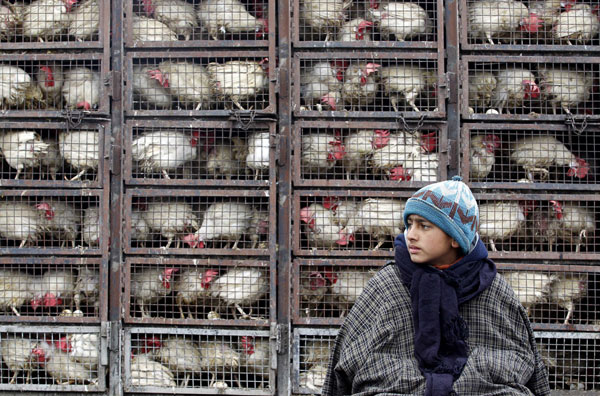Crucial year looms for global economy
Updated: 2012-01-16 07:53
By Karl Wilson (China Daily)
|
|||||||||||
Focus is on US and Europe, but Asia also faces a challenging period ahead, Karl Wilson reports in Sydney.
A global recession is a strong possibility in 2012, a make-or-break year teetering on Europe's debt turmoil and the state of the US economy.
Experts see Asia as one of the few bright spots, although weaker eurozone demand will contribute to slower growth. Estimates for this year vary from 4 to 8 percent. Inflation will remain a major concern for many Asian economies along with bank liquidity problems, but most analysts agree the region is well placed to deal with both.
|
 |
|
Tourists visit the Bund in Shanghai. Those who arrive by air have helped support Asia's international passenger market and China's domestic demand, which Credit Suisse expects to remain resilient this year. Shao Chang / for China Daily |
China, after a decade of double-digit growth, can expect its economy to grow 8 to 9 percent this year, and India 7 to 8 percent. Japan might be lucky to grow about 2 percent after retrenchment in 2011. Much of this, however, will be attributed to rebuilding after the devastating earthquake and tsunami in March.
Cautions have been issued against allowing inflationary pressures to build up in China, where the housing market overheated and public finances are less than healthy. High domestic savings rates are the counterpart to large current account surpluses, which overexpose China to turmoil on global markets.
But it is the policy decisions in Europe and the United States that "hold the key to the global growth outlook", Joachim Fels, the global head of Morgan Stanley's economic team, said in the investment bank's outlook for 2012.
"Our bear case is a full-blown recession, and it won't take much to tip the balance," Fels said. "Our base case assumes European governments make a big step toward fiscal integration soon that stabilizes confidence, and that the US Congress extends most of this year's stimulus.
"Against the backdrop of recent policy mistakes, these assumptions may seem heroic. Failure on these fronts would risk a full-blown recession in the US and Europe, with global GDP growth falling below the 2.5 percent recession threshold."
All eyes on Europe
The main focus will be on Europe, chiefly the eurozone. Its sovereign debt and bank liquidity problems have been at the center of much of the global financial turmoil for two years.
|
 |
That turmoil poses a serious threat to the economies of emerging East Asia, said Iwan Azis of the Manila-based Asian Development Bank's office of regional economic integration.
"The region's policymakers must be prepared to act promptly, decisively and collectively to counter what could be an extended global economic slowdown," Azis wrote in the latest edition of the bank's Asia Economic Monitor.
The report assessed the economies of the Association of Southeast Asian Nations - Brunei, Cambodia, Indonesia, Laos, Malaysia, Myanmar, the Philippines, Singapore, Thailand and Vietnam - plus those of the Chinese mainland, Hong Kong and South Korea.
The bank expects the eurozone economy to expand 0.5 percent this year and the US economy to grow 2.1 percent.
Economist and academic Jonathan Story agreed that any "serious and long-term stagnation in Europe" will affect Asia. "It is possible that Europe, the world's No 1 emporium, can recover from its self-inflicted predicament," Story told China Daily.
|
 |
|
Food inflation soared last year in India, unlike these chicken at a wholesale market in Srinigar. The rate was 16 to 17 percent last January, but it had dropped by 1 percent at the end of the year. Fayaz Kabli / Reuters |
- In love with luxury amid global gloom
- Saudi oil refinery deal shows close ties
- China targets 10% foreign trade growth
- Hebei to build large offshore wind farm
- Antitrust filings rise 49% in '11 in China: MOC
- Lottery sales growth slows in China
- Shipbuilding orders slump on downturn
- First forex quarterly decrease in decade








